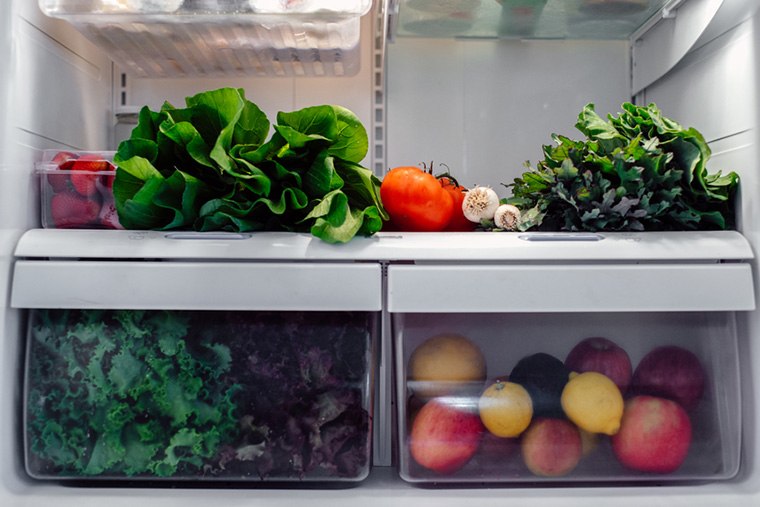What Does It *Really* Mean to Be in “Excellent” Health?
When you picture someone in “excellent” health, you probably don’t think of a fast-food connoisseur who sleeps four hours a night and doesn’t believe in exercise. Yet that’s exactly how President Donald Trump was classified by a White House doctor last week following his first physical examination in office. So is he some kind of unicorn that defies all conventional wellness wisdom—or does the medical establishment (and the rest of us) need to seriously rethink how it defines “healthy”?
Here, leading integrative physician Frank Lipman, MD, weighs in.
The determination last week of President Trump in “excellent’ health by his doctor really struck a nerve for you. Can you share a bit about why, as an MD, you find the results of his physical exam so unsettling?
I think they revealed the troubling idea that, in this country, we have a disease care system—we don’t really have a health care system.
There’s this idea that health is the absence of disease. We see health and disease as black or white, but it’s not binary. Just because you don’t have a disease does not mean you are healthy. There’s a huge gray area between the two, and all of us are somewhere on that spectrum. So for many people, even though their blood tests are “normal,” they may not be feeling as energetic as they should be, they have aches and pains, their digestion is off, they are not as mentally sharp, and possibly they’re overweight. True health is a feeling of vitality and emotional and psychological wellbeing. It’s way beyond just the absence of disease.
In this country, we have a disease care system—we don’t really have a health care system.
According to the White House doctors, President Trump is currently “healthy”—that’s to say, free of disease—and they predict he’ll remain that way for the rest of this term, and likely the next one. What do you think?

{{post.sponsorText}}
I have never seen him as a patient so I can’t comment directly on his health, but what I can say is that anyone with abdominal obesity is unlikely to be healthy. Abdominal obesity—when there is excessive fat around the stomach and abdomen—is known to have negative impacts on health. It is a major source of inflammation, and inflammation is likely the most important risk factor for heart disease, cancer, Alzheimer’s, and other serious diseases.
In addition, anyone who only sleeps for four or five hours a night is also unlikely to be in “excellent” health. Multiple studies have shown that sleep deprivation over time is associated with a lowered immune function and all sorts of diseases, including an increased risk of cancer, stroke, diabetes, and Alzheimer’s disease. And besides the risk of multiple diseases, we now know there is a cleaning system in the brain called the glymphatic system that only works when you sleep. It works like an overnight cleaning crew that clears toxic waste proteins that accumulate between brain cells during the day. So if you don’t get enough sleep, your brain suffers. Basically, if you don’t take the trash out, it’s going to accumulate into quite a mess! And, when the “trash” we’re talking about are toxins in the brain, it can cause all sorts of problems with the way your brain functions. Over time, it’s going to cause hazy thinking and confusion.
And finally, I have a hard time perceiving someone who eats junk food and does not exercise as healthy. Unhealthy eating alone is a risk factor for depleting your immune system and triggering it to go haywire. Even if someone does not smoke or drink, this definitely does not cancel all the other bad habits out.
[For a medical professional] to say President Trump is in “excellent” health and will remain so for the duration of his presidency is outrageous—and it’s also irresponsible, because it’s tacitly telling people there are no consequences for having such an unhealthy lifestyle, when nothing could be farther from the truth.

But the results of his physical all came back looking normal, which led the White House doctors to make their assessment. What do you make of this—do you think physicals are unreliable?
Even in the conventional medical community, there’s a lot of debate around whether a regular physical is a reliable tool for assessing health. With a traditional exam, we measure certain parameters, like cholesterol, and we assume that bringing down those parameters makes us healthier. That’s not necessarily the truth.
First of all, cholesterol levels are not a particularly helpful marker for health. And secondly, giving a drug to someone to bring down a high marker is often just a Band-Aid; it doesn’t deal with the underlying causes. If the oil light in your car goes on, you should try to see why, rather than just putting a Band-Aid over the light to cover it so you can’t see it anymore.
Is it time to reexamine the typical medical exam?
A physical does not usually address the underlying lifestyle factors—like poor diet, bad sleep habits, lack of exercise, stress, and others—that cause the various markers to go up. Taking a good history of the patient’s lifestyle factors (especially diet) is as important or even more important than just testing numbers. There’s a quote from Wendell Berry, a famous American philosopher: “People are fed by the food industry, which pays no attention to our health, and are treated by the health industry, which pays no attention to food.”
I think a true assessment of health needs to take into account all of the factors that affect it: How we eat, how we move, how we sleep, how we are in community with other people, our support system, stress, the amount of chemicals we’re exposed to and how we’re dealing with them. It’s a multifactorial issue, it’s not so reductionist and simplified as is so often implied in a traditional exam.
The president’s doctors chalked up his glowing exam results to good genes. What do you think of that?
Genes play a role, to a certain extent, but most of our genes are modified by the way we live our lives. We now know from the science of epigenetics that factors such as lifestyle and diet can heavily influence what roughly 98 percent of our genes do, how they behave, and how they express themselves. The better your lifestyle choices, the better your genes will “behave,” flipping on the health-sustaining switches and turning off the ones that promote chronic diseases, cancers, inflammation, and oxidative stress. Healthy habits will create healthy genes and having “good” genes will not override unhealthy habits.

So what does excellent health look like?
I’ve been practicing medicine for almost 40 years, and I have observed that people who truly are in excellent health are eating mostly simple, whole foods—not industrial, processed foods, and not a lot of sugar. Almost all of them move their bodies. When I look at healthy people in their 70s, a lot of them don’t call the activity they do “exercise.” They may not go to the gym, but they’re walking, they’re playing with their grandchildren.
There’s a spectrum between health and disease, and you can move towards the health side only by creating healthy habits.
Almost all healthy people of any age have something they do that chills them out. Almost all of them have something they feel passionate about. It could be working for a nonprofit, it could be their jobs or families. They have a very strong support system or social network. And most of them have good sleep habits.
And what do you think patients should take away from this discussion?
It’s important to understand that the small choices you make on a daily basis affect your health more than you realize. Most of our genes are malleable, both positively and negatively. There’s a spectrum between health and disease, and you can move towards the health side only by creating healthy habits.
It’s time to start thinking twice about your sleep quality, how you deal with stress, how you eat, how you move. Are you lonely? Do you have meaning and passion in your life? These are the things that are going to affect your health. Don’t think that just because a few numbers from your physical are relatively normal, you’re healthy. That is just not an accurate view of health, though it may have been 30 years ago. You need to take charge of your own health—you can’t rely on your doctor’s simplistic tests to tell you you’re healthy. That way of thinking is passé.
There's no time like the new year to start overhauling your habits for the better. Check out these five ways to make your mornings healthier, plus the pre-bedtime rituals you should adopt for better sleep.
Loading More Posts...